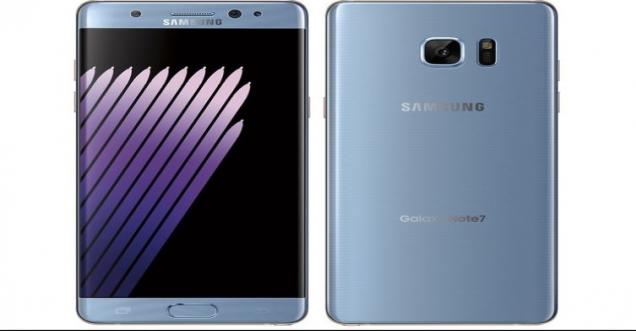
The device was going to be Samsungs greatest device ever, Samsung Galaxy Note 7, went into fire and still after this time we don’t know exactly what the fault in the device was and still no apology from the real fans of Samsung devices and the Note series.
Initially samsung shipped 2.5 million units of the Note 7, which were found faulty. Once it was found that the device had a manufacturing flaw, Samsung set about recalling them and replacing them. And it turns out some of those so-called “safe” units were also suffering from the same overheating and catching fire problem. While Samsung took its time to investigate the problem, its carrier partners — stopped selling and replacing the Galaxy Note 7 and offered free replacement to any other device even for users who had the “safe” units.
The immediate impact for Samsung are,
The Galaxy Note 7 is dead.
Analysts estimate Samsung would end up losing $17 to 20 billion to write off the Galaxy Note 7 inventory.
Then there are a couple of cases against Samsung, and of course,
there will be more official investigations about the device.
But the whole incident could have long-term negative impact for Samsung and all the devices of samsung.
People who were in likes of the Samsung device as the number one choice would move over to other devices.
To begin with, questions and doubts would be raised about quality control processes within Samsung’s facilities. While manufacturing defects can happen with any company, it remains to be seen what happened when it was found that the first batch of Galaxy Note 7′s had a battery manufacturing defect. Samsung was pretty quick to point out the defect, once it was established that overheating and exploding devices were not isolated incidents, it was quicker to ensure it would have “safe” replacement units in about a fortnight.
Could it be a case that Samsung didn’t get to the bottom of the defect in a rush to ensure inventories were shipped to markets at a priority to minimize loss of market share and to appease existing customers? Had Samsung effectively identified the root cause of the defect, there is no reason why even the “safe” units would face similar problems. While Samsung identified the defect in the battery manufacturing process, there have been reports, including one from the US CPSC that claimed the battery compartment in the device was a bit too small for the battery.
Having said that, irrespective of what transpired, reviving the Galaxy brand, especially in the high-end segment is going to be an uphill task for Samsung. Already, any random incident with any Samsung smartphone is automatically being linked with the Galaxy Note 7′s exploding batteries. A recent incident with an old Galaxy Note 2 in an IndiGo flight resulted in the DGCA adding the Galaxy Note 2 in the advisory asking flyers not to check in the device or use or charge it during the flight, along with the Galaxy Note 7. It is probably the first time any single brand has been singled out.
What matters most is that Samsung was forced to stop the replacement, sale and production of the Galaxy Note 7 by its carrier partners in the US, which cared about the safety of their customers more than Samsung, did. They were the ones to proactively stop the sale of the Galaxy Note 7 “safe” units after a couple of incidents and even encouraged customers who had received their replacement Galaxy Note 7 devices to come and replace them again for any other Smartphone. Samsung, on the other hand, continued to “investigate” the incidents even when at least a million users had potentially unsafe devices in their pockets that could cause damage to both lives and property.
Incidents like these can happen with any brand. But what differentiates brands is how they tackle them. Samsung still hasn’t come up with an apology that it messed up but it still had the best intentions for its loyal users. The next release of the galaxy series might remove the blot of the note 7, Samsung must be in that context as of now.












.jpg)














